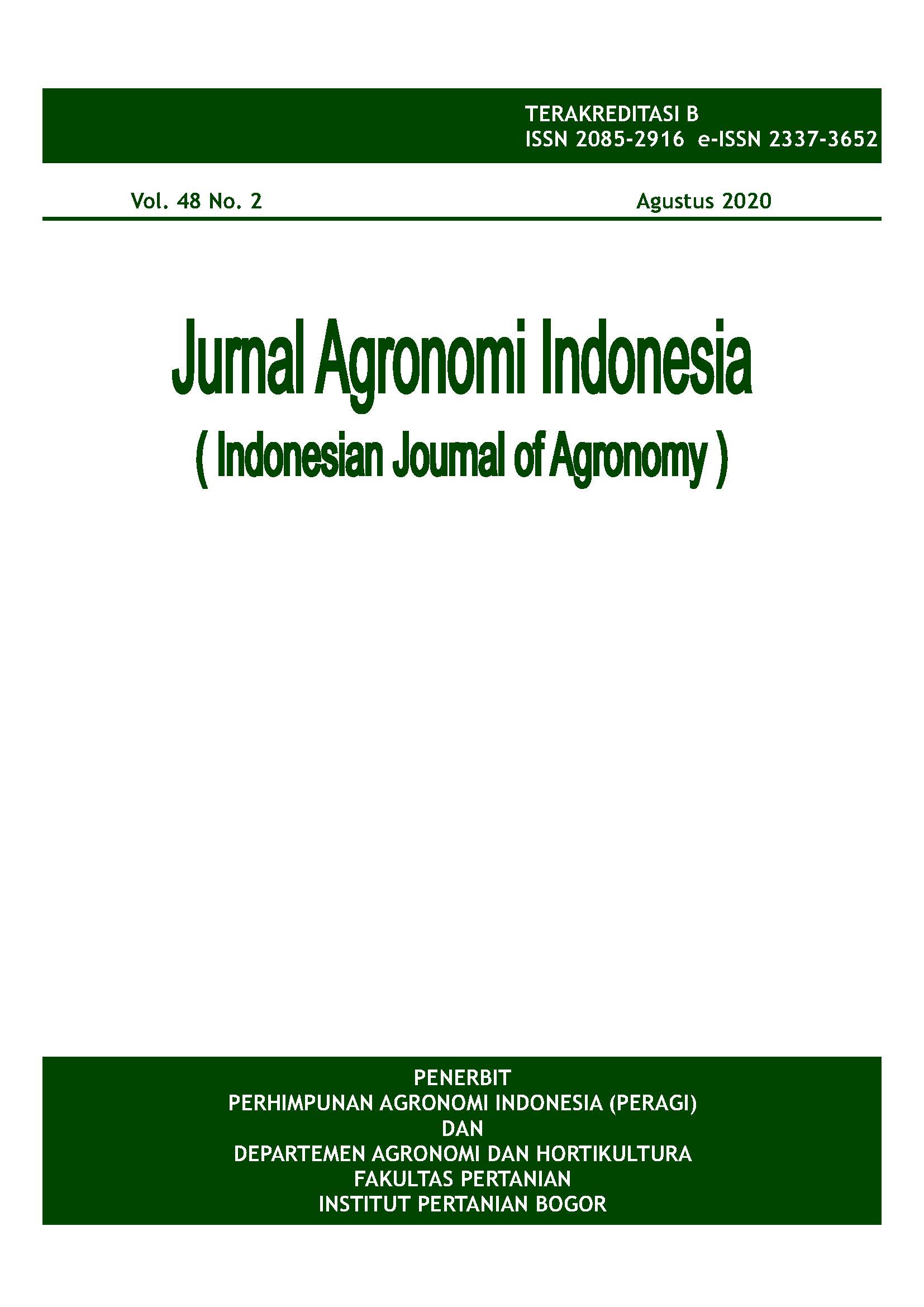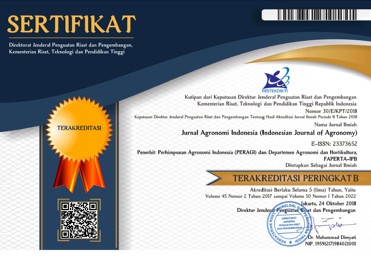Efektivitas Bioherbisida Berbahan Baku Tepung Umbi Teki (Cyperus rotundus L.) pada Berbagai Formulasi dan Dosis terhadap Perkecambahan Biji Gulma
Abstract
Teki (Cyperus rotundus L.) is a noxious weed in horticultural commodities because it contains allelochemicals that can inhibit plant germination. The allelopathy has the potential to be used as a pre-emergence bioherbicide to control broad leaves weeds and grasses. The purpose of this study was to determine the effectivity of bioherbicide made from nutsedge tuber based on various formulations and dosages. The research was conducted in March-June 2019 in a greenhouse at the Cikabayan Experimental Station, IPB University, Bogor. The experiment used a factorial completely randomized design with three replications. The first factor was tuber formulations (F1: tuber powder, F2: tuber powder + aquades, F3: tuber powder + aquades + surfactant, F4: Macerate, F5: Macerate + surfactant, and F6: Pellets), and the second factors were the dosage of the tuber powder (22.50 kg powder ha-1, 45 kg powder ha-1, and 67.5 kg powder ha-1) so that there were 18 treatment combinations. The results showed that all bioherbicide formulations made from tuber powder effectively suppress germination. For practical purposes, pellet formulations were recommended because the application is easier and more efficient. Effective dosage for suppressing germination and growth of weed sprouts was equivalent to 45 kg powder ha-1.
Keywords: A. gangetica, A. gangeticus, E. crus-galli, macerate, pellets













